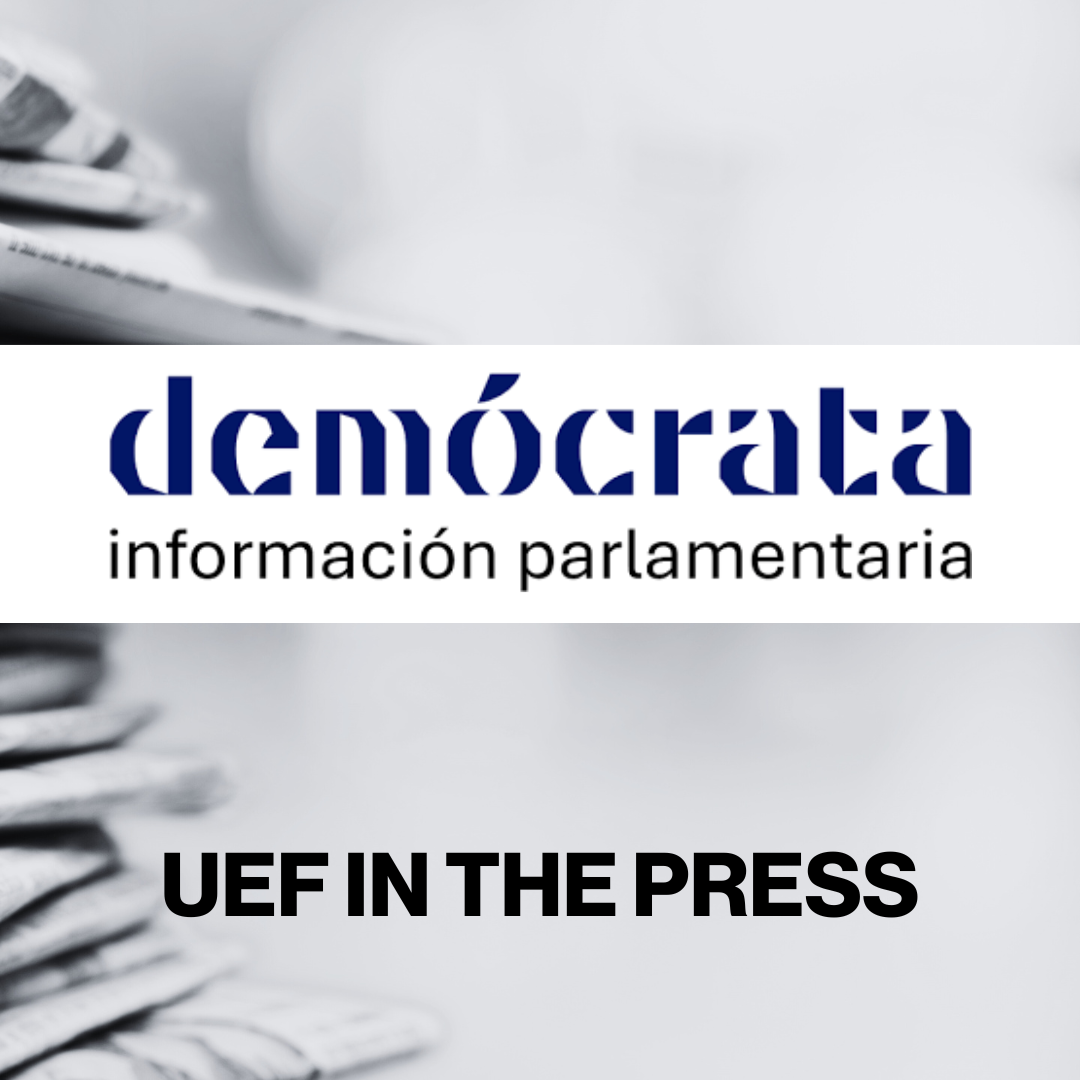
The European Council's unacceptable silence on treaty reform
We would like to share here the opinion signed by UEF President Domenec Ruiz Devesa and published in the Spanish review with the title: Democrata Informacion Parlamentaria.
Read here the original article in Spanish LINK HERE
In November 2023, the plenary of the European Parliament adopted an ambitious proposal for the reform of the EU Treaties. This project responded to the political and democratic mandate received following the Conference on the Future of Europe, an unprecedented exercise in citizens' deliberation which, through representative citizens' panels, called for a more effective, more democratic and more empowered Europe, in an increasingly complex and hostile geopolitical context. In short, they asked for more and better Europe.
Among the main innovations proposed were:
- the elimination of unanimity in many areas (including foreign policy)
- the strengthening of the European Parliament's legislative power
- the creation of shared competences in public health, energy, defence or education
- the affirmation of the rule of law as a binding basis for institutional functioning.
These reforms are not a federalist whim, but a functional necessity: we cannot enlarge the Union to 30 or 35 States with institutional structures designed for six, and subject to the permanent blockage of national vetoes. Vetocracy is not compatible with enlargement, nor with an effective Union.
The European Parliament's proposal triggered the ordinary reform procedure provided for in Article 48 of the Treaty on European Union (TEU). This article expressly recognises that the European Parliament - like the Commission and the Member States - has the right to submit proposals to amend the Treaties. Once a proposal has been submitted, the European Council must examine it and decide, by a simple majority, whether to convene a Convention to discuss it, whether to entrust an Intergovernmental Conference directly with the drafting of the new texts, or whether to ask Parliament to withdraw the proposal. Under no circumstances can it ignore the request for reform: it is obliged to deal with it.
This procedure has been followed correctly: the plenary of the Parliament approved a series of articulated amendments to the Treaties, and the Council, under the Spanish Presidency, formally transmitted the proposal to the European Council in December 2023. Since then, the European Council has not even acknowledged receipt, nor has it debated the issue, nor has it responded in any way. This silence is politically but also legally unacceptable, as well as grossly disrespectful to the parliamentary institution.
Although article 48 does not set a specific deadline for a reply, it is clear that a prolonged omission violates both the article itself and the principle of loyal cooperation enshrined in article 13(2) TEU, which states that "the institutions shall cooperate in good faith with each other". The absence of an explicit deadline in Article 48 TEU does not mean that the European Council can ignore the reform proposal indefinitely. According to the settled case law of the Court of Justice of the European Union, when a legislative text does not set a specific deadline, it must be understood that the institution concerned is obliged to act within a reasonable period of time.
This doctrine, developed in particular in the context of Article 265 TFEU (action for failure to act), requires the institution called upon to act to define a clear position within an appropriate period of time, so that prolonged failure to act may give rise to legal liability. Moreover, this requirement is reinforced by Article 41 of the Charter of Fundamental Rights of the European Union, which guarantees the right of every person to good administration, including the obligation for the institutions to deal with matters within their competence within a reasonable time. Applied to the present case, the silence of the European Council since December 2023 constitutes a clear breach of this principle, all the more so in the case of an institutional proposal duly submitted by the Parliament.
Faced with this institutional stubbornness, the European Parliament has several avenues open to it. First, it can draw up an implementation report, i.e. a report assessing the institutions' compliance with primary law. This report can formally reiterate to the European Council that the reform proposal is still pending, and urge it to decide whether to convene the Convention or the Intergovernmental Conference.
It could also set a formal deadline for the European Council to act. If it fails to do so, Parliament could bring an action for failure to act under the aforementioned article 265 of the Treaty on the Functioning of the European Union (TFEU), which allows an institution to be sued for failing to act when it is legally obliged to do so.
Beyond the legal level, the Parliament could also take a more political step: convene an interparliamentary conference, with the participation of national parliaments, to debate and eventually endorse the proposed amendments to the Treaty. This would not be a formal means of reform, but it would be an unprecedented act of democratic pressure in the face of the European Council's unconstitutional stubbornness.
The EU faces a dilemma: either it strengthens its democratic capacities, institutional effectiveness and citizen legitimacy, or it risks being trapped in its structural paralysis, in a world under the growing aegis of Putin, Trump, and Xi Jinping. Reforms are on the table. What is missing, for the moment, is the will to act, at least but to open the debate on the adoption of a new, more democratic and effective treaty. In other words, more federal.
